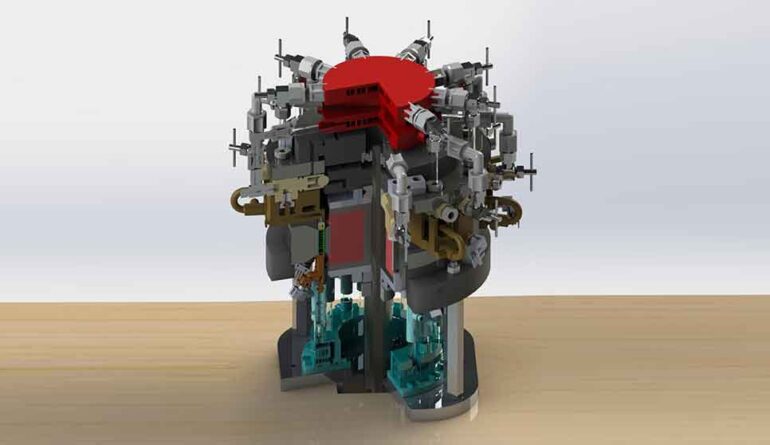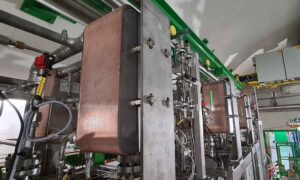Making magnetocalorics a match for heat pumps
8th December 2024
USA: Researchers in the USA claim to have developed a magnetocaloric heat pump that matches current vapour compression heat pumps for weight, cost and performance.
While magnetocaloric heat pumps, which work without gaseous refrigerants, have been seen as a promising replacement in cooling and heating applications, until now they have not matched current technology due to their large size and mass, and resultant high cost.
The team from the US Department of Energy Ames National Laboratory focused on using space and materials more efficiently, and reducing the amount of permanent magnet material and magnetic steel needed for the pump to operate efficiently. These efforts helped to make the core system pieces match the weight of compressors available today.
A magnetocaloric heat pump works by changing the magnetic field applied to a magnetocaloric material while pumping fluid to move heat. This is typically achieved with permanent magnets.
The core of the device involves spinning permanent magnets relative to the magnetocaloric material and using magnetic steel to keep the magnetic field contained. The arrangement of these three pieces plays a major role in the team’s predictions as they examined how to make the heat pump more power dense.
Another part of their investigation involved evaluating the two most common magnetocaloric materials used in these heat pumps. Gadolinium and lanthanum-iron-silicon-hydride-based material.
“In our baseline device, we kept it simple by using a single material, gadolinium,” explained the research team leader Julie Slaughter. “Lanthanum-iron-silicon materials have a higher power capability than gadolinium. So, that naturally increases the power density. They’re just not as readily available and require multiple materials in one device to get good performance. In our evaluations, we included estimates of LaFeSi performance for the most power-dense devices.”
“We were able to show that we are competitive with the power density of some of the compressors that are out there today,” said Slaughter. “The permanent magnets and the magnetic steel make up most of the mass rather than the expensive magnetocaloric material, and that’s really helpful for affordability. We assumed, if a device weighs about the same, the cost will be about the same in mass production.”
The research is further discussed in the paper Scalable and compact magnetocaloric heat pump technology.







